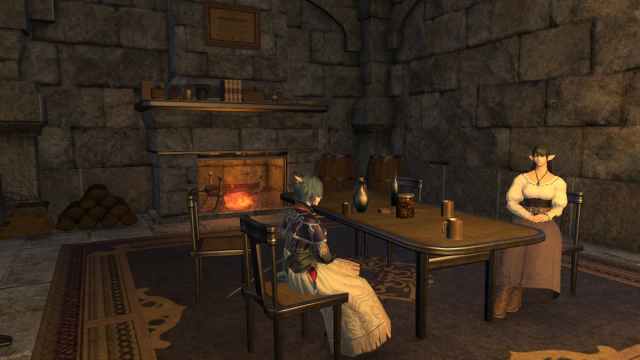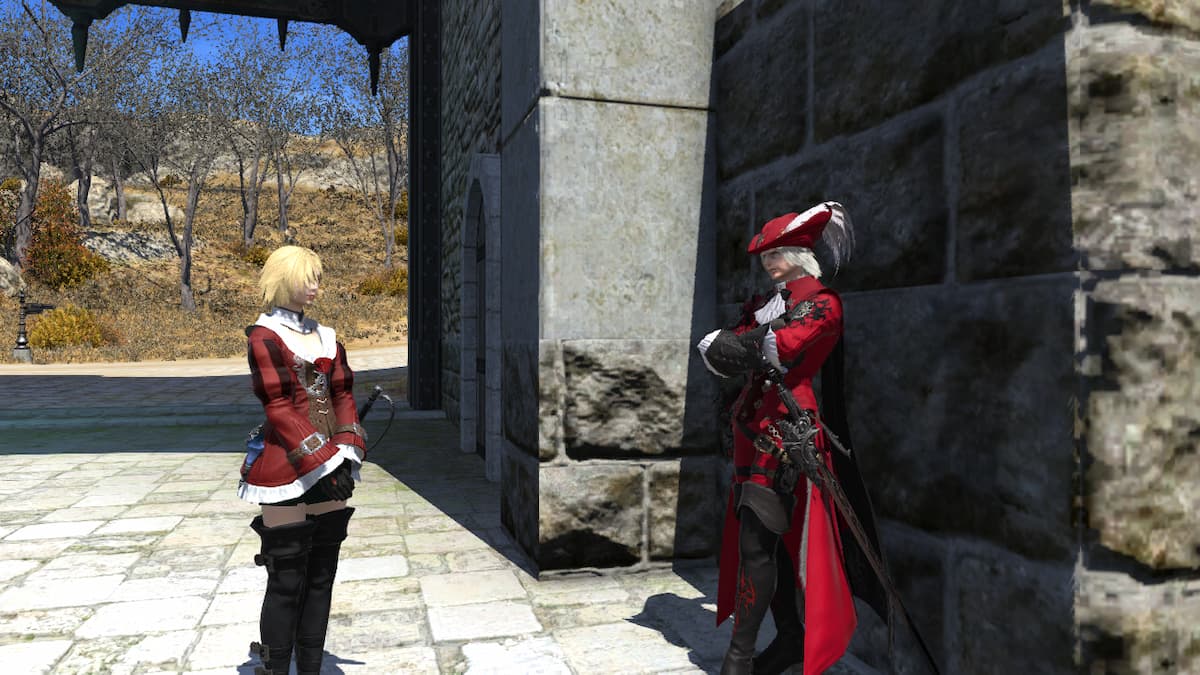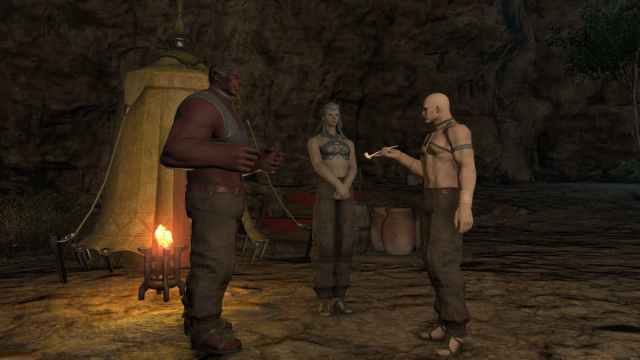Uh-oh, other people
Final Fantasy XIV is an MMORPG. I knew this before I started playing it, and I also knew that the second “M” in that acronym would represent a problem for me. I don’t play a lot of MMOs specifically because they require a team. A party of other players is necessary to run dungeons and make meaningful progress. I don’t have many friends willing to commit to an MMO, so that party is almost always comprised of strangers. And when strangers are relying on me, I tend to get really anxious really fast.
The basic idea of an online game isn’t what stresses me out. I play plenty of online games. I don’t mind trying something like Magic the Gathering Arena or Halo Infinite‘s FFA Slayer mode, where I only have myself to worry about when I inevitably faceplant. I’ll even occasionally dip into Guilty Gear Strive‘s online modes despite being one of the worst Guilty Gear Strive players in the world. The second I’m responsible for someone else’s success or failure, though, I’m a mess.
That’s where the Final Fantasy XIV Duty Support system comes in.

Lonely little me
Final Fantasy XIV‘s third expansion, Shadowbringers, introduced a system called Trust, which would allow players to run dungeons from the Shadowbringers Main Scenario questline with a party of NPCs. The Trust System was well-regarded and led to the frequent refrain that FFXIV was now a “great single-player game,” which is a questionable claim at best.
Trust made its triumphant return in Endwalker, but more importantly for me, Endwalker introduced Duty Support. The Duty Support System is very similar to the Trust System. It lets the player run pre-Shadowbringers MSQ dungeons with a party of NPCs. Duty Support dungeons are a bit less involved than Trust dungeons since those dungeons weren’t designed with the system in mind, but they’re still massively important.

When I started playing FFXIV, I was at my absolute most anxious. It was my first MMO ever, and I was pretty much lost. When it came time to run dungeons, I nearly walked away from the game entirely. I’m embarrassed to admit it, but I was sincerely scared to play the game with other people.
Alleviating anxiety
By the time I started FFXIV, Duty Support was already available for dungeons in every expansion except Stormblood. This meant that I had the chance to run dungeons in A Realm Reborn on my own. So that I did…and, honestly, it wasn’t very fun. I found the combat remarkably bland and clunky in the overworld, and my gripes only got worse in the dungeons. But I never would have done these dungeons at all with other people, so the Duty Support system got me to experience something I otherwise wouldn’t have, and that’s worth something.

They also let me actually progress through A Realm Reborn. I think the entire campaign is basically terrible, but if I hadn’t stuck with it, I never would have discovered the things that I actually like about FFXIV. I never would’ve picked up crafting or gathering classes if I wasn’t already invested in my character, and I never would’ve gotten invested in my character if I couldn’t run dungeons.
Duty Support also is also handy for learning new jobs. Some classes are very confusing, and I find that dungeons are a good place to learn your rotation. Even if the combat isn’t all that fun on its own, a lot of jobs have very interesting questlines associated with them. It’s worth learning the ropes, and having a place to do just that without worrying about other people judging your single-pulls is nice.

A sociable future
After I ran my first few Duty Support dungeons, I actually felt empowered to start engaging with the game on its social terms. Some dungeons and encounters are multiplayer-only, but even when I had the choice, I started actively opting for random party match-ups during the MSQ. I found myself enjoying the game a lot more. Like I said before, Final Fantasy XIV is not a great single-player game–combat feels really weird unless it’s executed in conjunction with other players. Sure, the NPC companions will do the task, but being able to talk through strategies with other players and see how they approach problems really highlights the strength of the Tank/DPS/Healer combo.
I’ve found that other FFXIV players are actually incredibly friendly. This is something I had been told before I started playing, but it didn’t do anything to make me feel much better. Once Duty Support finally convinced me to run dungeons as they were designed, I found an uncommonly kind community. Generally, suboptimal play isn’t chastised; it’s corrected, and I found myself getting better at the game because of that. I never would have ended up discovering what’s actually fun about FFXIV without Duty Support. In fact, I probably would have dropped the game entirely.

Duty Support does not turn Final Fantasy XIV into a good single-player game. When judged on those terms, it will always come up short next to actual Final Fantasy games that are designed around a single-player experience. However, Duty Support does turn Final Fantasy XIV into a better multiplayer game. By providing a low-stakes environment where players can practice, or where they can simply progress when they don’t feel like interacting with other people, the Duty Support system makes socializing a choice rather than a chore. It makes every interaction automatically more pleasant. It’s a very simple addition to a very complex game, but it might be my single favorite mechanic in FFXIV.








